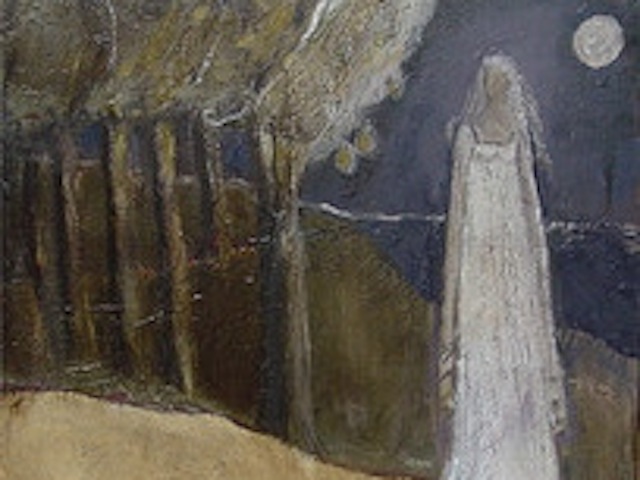The Handless Maiden: What Happens Next?

I finished up with appointments this afternoon to find two e-mails in response to the piece of The Handless Maiden story that I posted yesterday.
“I can’t bear it if this is the end of the story.”
And, “So what happens next?”
The responses (as always) were welcome. And they led me back to Clarissa Pinkola Estes’ Women Who Run with the Wolves to pick up the story where I left off: at that moment when the king’s mother instructs the queen to flee for her life.
So what happens next?
The queen does flee, and then wanders into a large, wild forest. There, a spirit in white guides her to an inn run by kindly woodspeople. She stays there seven years and finds happiness there with her child. Her hands grow back.
Meanwhile, the king returns home from the war, believing what his mother first tells him in her anger–that she has killed the queen and his child as instructed. (At this point, she doesn’t know how twisted the messages have become. She believes at this point that murder, in fact, was her son’s instruction.) The king weeps and staggers in his grief before the old women relents and tells him in fact what has happened–the queen and the child are gone.
Estes writes what happens next:
The king vowed to go without eating or drinking and to travel as far as the sky is blue in order to find them. He searched for seven years. His hands became black, his beard moldy brown like moss, his eyes red-rimmed and parched. During this time he neither ate nor drank, but a force greater than he helped him live.
Finally, he comes to the inn. He is exceedingly tired, and he lies down to sleep. He wakes to find a lovely woman and a beautiful child looking down at him.
The king and queen embrace. They feast. They return to the king’s mother, celebrate a second wedding, and go on to have many more children, all of whom, Estes writes, “told this story to a hundred others, who told this story to a hundred others, just as you are one of the hundred others I am telling it to.”
Ah, the happy ending.
I do like happy endings.
But I also can’t help noticing that, in this story at least, it takes seven years or more to get there. And it involves more wandering, that deep dark forest, hunger, thirst, extreme grief, black hands, a moldy brown beard, and those eyes red-rimmed and parched.
I’m reminded of a book title that is on my reading/to buy list but that I haven’t gotten to yet: The Impossible Will Take a Little While.
